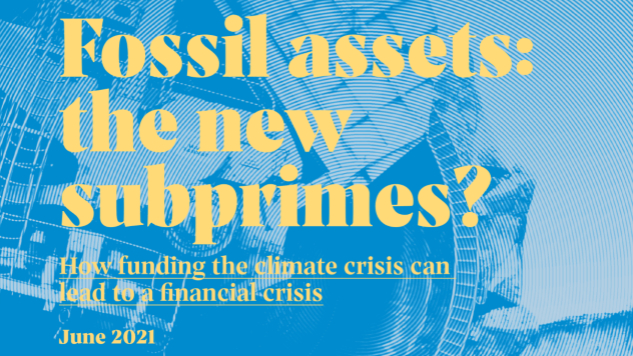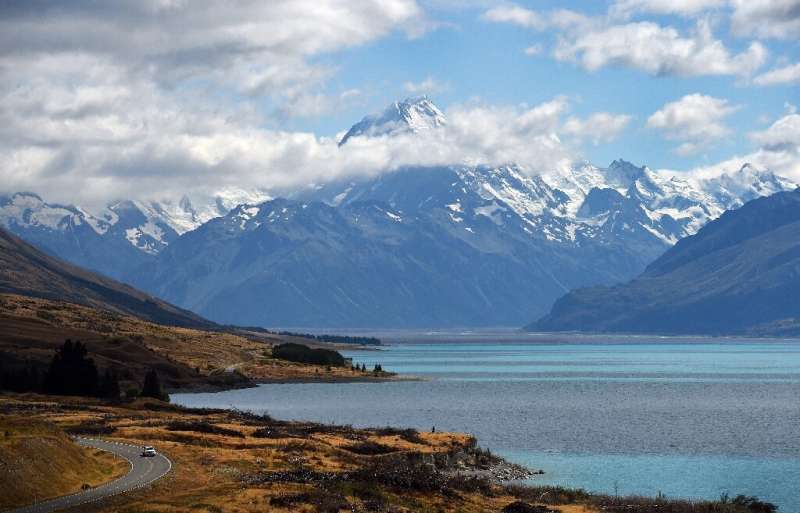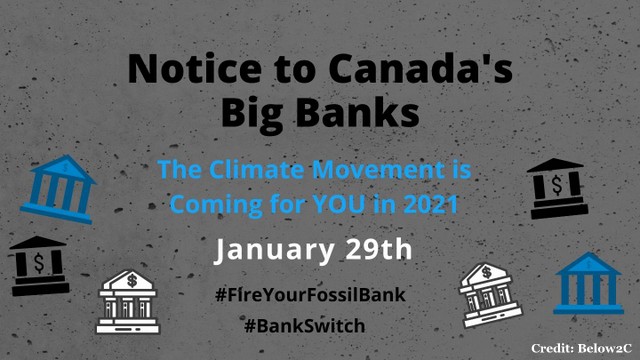“The difficulty lies not so much in developing new ideas as in escaping from old ones.” – John Maynard Keynes
Global List of 100 Most Sustainable Companies 2025

Global List of 100 Most Sustainable Companies 2025 | Corporate Knights
Canada has 11 companies represented in the Global 100. The Canadian contingent is led by engineering firms Stantec Inc., which aimed 82% of its capital expenditure at sustainable investing in 2023, and WSP Global Inc., which earned 64% of its revenue from sustainable sources that year. Read the article and view the list here.
‘LIKE THE TITANIC’: Climate Risk Estimates Shipwrecked by Neglect of Science

Nov 28, 2023 – The Energy Mix
…One fundamental problem with the climate risk scenarios financial institutions are using to guide investment decisions is that the numbers they deploy “have been made up” by people who have no understanding of climate change, said Steven Keen, an economist and research fellow at University College London. Such ignorance is long-standing and entrenched, he said, citing American economist and 2018 Nobel Prize winner William Nordhaus as one of the originators of the “nonsense” numbers that underpin mainstream climate risk scenarios today. – more
Banking on Climate Chaos
The world’s 60 biggest banks poured over $5,500,000,000,000 over 7 years into the fossil fuel industry, driving climate chaos & causing deadly local community impacts.
Bank funding for fossil fuels often brings dire threats to the lives and livelihoods of local communities around the world — harming Indigenous Peoples, Black and Brown communities, and poor and working-class communities first and worst.
Explore the Data
This report adds up financing (lending and underwriting of debt and equity issuances) from the world’s 60 biggest banks for the fossil fuel sector as a whole, as well as for top expanders of the fossil fuel industry and top companies in specific sectors.
Why Are Canadian Banks and Insurance Companies Still Financing Russian Oil
March 11, 2022 – Below2C – RMontpellier

As we witness a steady flow of large corporations, institutions and governments taking action against the Russian oil and gas industry, one must wonder why the Canadian financial sector has been missing in action—lacking the moral fibre to do what is right.
“Canadian banks, insurance companies and asset managers have pumped millions into Russian-owned oil and gas companies that have flowed into the petrostate’s war chest,” wrote the National Observer in a recent article.
The world’s addiction to oil—our dependence on a fossil fuel system—is dangerous not just for the climate but also threatens world peace, Stand.Earth Executive Director Todd Paglia
Op-Ed: The Ukraine war is a decision point — banks should stop funding the fossil fuel industry forever
March 9, 2022 – The Los Angeles Times – by Svitlana Romanko and Bill Mckibben

We are worlds apart now, one of us terrorized amid the wreckage of invaded Ukraine and the other entirely safe in the United States. But because we’ve been engaged in the same global fight against fossil fuels for decades, we are well-situated to see some of the key drivers behind this wretched moment, and hence some of the solutions.
Above all, it’s obvious that the world’s banks have amorally worked to build Russia’s oil and gas industry, the industry that funds the Russian army, and the industry that Vladimir Putin has used as a cudgel for decades to keep Europe cowering.
Financing Our Survival:
Building a Nature Positive Economy through Subsidy Reform
February 2022 – Prepared by The B Team and Business for Nature
Unless we start to bring awareness, transparency and disclosure on subsidies from both governments and business we are continuing to finance our own extinction.
This brief summarizes the headlines from a study by Doug Koplow and Ronald Steenblik, who were commissioned by The B Team to undertake a broad review of the different types of environmentally harmful subsidies (EHS) across sectors and estimated a total value. Their study estimates that the world is spending at least $1.8 trillion a year, equivalent to 2% of global GDP, on subsidies that are driving the destruction of ecosystems and species extinction.
‘$22-Trillion Time Bomb’ Ahead Unless Banks Drop High-Carbon Investments, Moody’s Warns
November 28, 2021 – The Energy Mix

“Unless these firms make a swift shift to climate-friendly financing, they risk reporting losses,” Bloomberg writes. And “it’s not just the moral imperative—that fossil fuel use is destroying the atmosphere and life on Earth with it. It’s that their financial health requires leaving such companies behind.”
Fossil assets: the new subprimes? How funding the climate crisis can lead to a financial crisis
June 2021 – BankTrack

A new report by the Rousseau Institute, Friends of the Earth France and Reclaim Finance, and endorsed by 12 civil society organizations including BankTrack, reveals that major European banks accumulated EUR 532 billion in fossil fuel assets (1) – representing 95% of their total equity – and would struggle to put up with a sudden drop in their value.
In world first, New Zealand to make banks report climate impact

phys.org
New Zealand will force banks to reveal the impact their investments have on climate change under world-first legislation intended to make the financial sector’s environmental record transparent, officials said
Banking industry funnelled $17 trillion into big plastic over 4½ years
FEBRUARY 3, 2021 – the Energy Mix

A groundbreaking investigation into plastics funding has found that the world’s biggest financial institutions have been “silently and indiscriminately” bankrolling the biggest actors in the global plastic supply chain. Between January 2015 and September 2019, they wrote cheques totalling more than US$1.7 trillion.
In its Bankrolling Plastics report, the collaborative research group Portfolio Earth reveals how institutions like Bank of America and HSBC have been acting as enablers for the plastic supply chain—making them partially, but profoundly, responsible for the plastic pollution crisis, reports Forbes.
Obsession With GDP, Disregard of Nature Leading Towards Ecosystem Collapse: Report
Published on Tuesday, February 02, 2021 by Common Dreams
Andrea Germanos, staff writer
“Securing nature is investing in our self-preservation.”
A new report out Tuesday from the U.K. government framing the natural environment as “our most precious asset” says the world’s destruction of biodiversity has put economies at risk and that a fundamental restructuring of global consumption and production patterns is needed for humanity’s survival.
Canada’s Big 5 Banks: The Climate Movement Is Coming For You In 2021
By Rolly Montpellier @Below2C_ -January 15, 2021

Since the Paris Agreement, Canada’s Big Five banks—RBC, TD, BMO, CIBC, Scotia—have financed fossil fuels over half a trillion dollars (C$641 billion) globally and in Canada they provide the lion share (70%) of the money for Tar Sands expansion (C$93 billion).
The 2020 Banking on Climate Change Report finds that, overall, bank financing continues to be aligned with climate breakdown. Thirty five (35) global banks have funneled an additional US$2.7 trillion in fossil fuels since the Paris Agreement (2016-2019) with financing on the rise each year.
INSURANCE INDUSTRY CONTENDS WITH RISING LOSSES AS CLIMATE CHAOS SWEEPS THE GLOBE
JANUARY 13, 2021 – the Energy Mix
The climate crisis is exacting a rising price from the global insurance industry, a relief and development agency says. As the world digests the news that 2020 with 2016 were the hottest years on record, two reports attempt to assess how many billions of dollars are being lost as a result of an ever-warming planet.
Shift: Action for Pension Wealth and Planet Health –
Tell your pension fund to protect your pension and the planet. Canada’s top ten pension funds alone manage over $1.5 trillion. How these funds invest your retirement dollars is a major factor in how quickly we can transition to a low-carbon economy while growing your pension in a warming world. The decisions of pension funds influence whether businesses in Canada and around the world build electric cars and solar panels, or diesel engines and coal-fired power plants.
Banking on Climate Change 2020: Fossil Fuel Finance Report Card
MARCH 18, 2020 BY OCI TEAM REPORTS, STOP FUNDING FOSSILS –
Financial companies are increasingly being recognized — by their clients, shareholders, regulators, and the general public — as climate actors, with a responsibility to mitigate their climate impact. For the banks highlighted in this report, the last year has brought a groundswell of activism demanding banks cut their fossil fuel financing
CONFRONTING CARBON INEQUALITY
From 1990 to 2015:
• The richest 10% of the world’s population (c.630 million people) were responsible for 52% of the cumulative carbon emissions – depleting the global carbon budget by nearly a third (31%) in those 25 years alone;
• The richest 1% (c.63 million people) alone were responsible for 15% of cumulative emissions, and 9% of the carbon budget – twice as much as the poorest half of the world’s population.
OXFAM MEDIA BRIEFING 21 SEPTEMBER 2020
Doughnut Economics
Watch the Ted Talk by world renowned economist Kate Raworth, watched over 3 million times – A healthy economy should be designed to thrive not grow. –here. What would a sustainable, universally beneficial economy look like? “Like a doughnut,”
EU Circular Economy Action Plan
The new Action Plan announces initiatives along the entire life cycle of products, targeting for example their design, promoting circular economy processes, fostering sustainable consumption, and aiming to ensure that the resources used are kept in the EU economy for as long as possible.
WEAll
is a collaboration of organisations, alliances, movements and individuals working towards a wellbeing economy, delivering human and ecological wellbeing.

